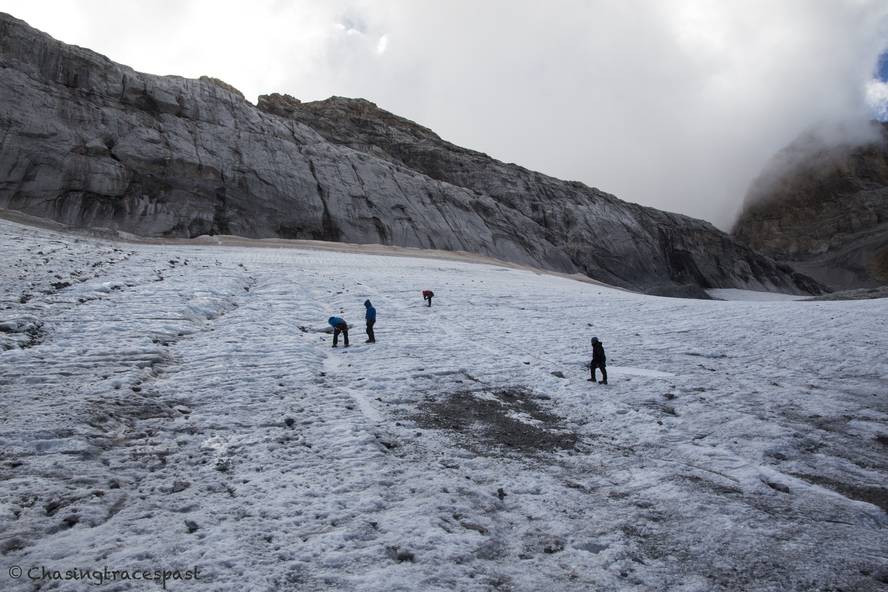Monte Perdido discovers that impurities can accelerate glacier melting
A study carried out on the glacier of Monte Perdido shows that the impurities present in the ice have remodeled the microstructure, altered the dynamics and accelerated degradation. The study, led by BC3, has analyzed for the first time in depth the interaction of different ice elements on glaciers. The result has been published in the journal Annals of Glaciology, understanding that it offers clues about the behavior of the glacier in the face of climate change.
Monte Perdido is located in the Ordesa National Park and has important ecological and cultural values. Its glacier is one of the southernmost in Europe and in recent years is being lost considerably: Between 2011 and 2020 it has lost an area of 12.9%, mainly due to anthropogenic climate change. According to forecasts, if current climate trends continue, the glacier will disappear in the next 50 years.
In an attempt to better understand this evolution, a deep microstructural study of an ice core was carried out in 2017 on the Lost Mount Glacier. The analysis was carried out in a specialized laboratory at low temperatures, Izotz alab BC3, which focused on a section of 20 cm of the core, marked by a very pronounced reddish brown impurities layer.
The study has shown that these impurities substantially modify the internal structure of the ice. In fact, the more particles there are, the smaller and more irregular (less rounded) appear. Several previous studies on polar ice indicate that this structural change facilitates the inner movement of the glacier. It follows that, even in Monte Perdido, these microstructural changes can accelerate the flow of the glacier to warmer and lower areas, which would cause a faster thaw.
In addition, researchers have tried to find out where these particles come from and how they integrate into the glacier structure. According to the study, the particles from the ice core of the Lost Glacier come from the Sahara desert, dragged by the wind. In other places there can also be volcanic ash and others. In any case, they have announced that such events will become increasingly frequent in the future.






